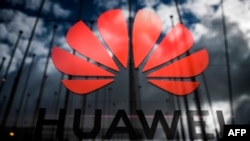The United States on Monday granted another 90 days for companies to cease doing business with China's telecoms giant Huawei, saying this would allow service providers to continue to serve rural areas.
President Donald Trump in May effectively barred Huawei from American communications networks after Washington found the company had violated US sanctions on Iran and attempted to block a subsequent investigation.
The extension, renewing one issued in August, "will allow carriers to continue to service customers in some of the most remote areas of the United States who would otherwise be left in the dark," US Commerce Secretary Wilbur Ross said in a statement.
"The department will continue to rigorously monitor sensitive technology exports to ensure that our innovations are not harnessed by those who would threaten our national security."
American officials also claim Huawei is a tool of Beijing's electronic espionage, making its equipment a threat to U.S. national security — something the company denies.
Huawei's chief financial officer, Meng Wanzhou, who is also the daughter of the company's founder and CEO, was arrested in Canada last year and is now fighting extradition to the United States on fraud and conspiracy charges tied to US sanctions.
The battle over Huawei has also landed squarely in the middle of Trump's trade battle with Beijing.
U.S. officials initially said the two were unrelated as the Huawei actions were strictly law enforcement and national security matters but Trump has suggested a resolution could involve some common ground concerning Huawei.
Following the near-collapse of U.S.-China trade talks in May, Washington added Huawei to a list of companies effectively barred from purchasing U.S. technology without prior approval from the US government.
But, since companies have said they need time to begin to comply with the change, Trump has granted a series of limited reprieves, which officials say allow only "specific, limited" transactions involving exports and re-exports.




